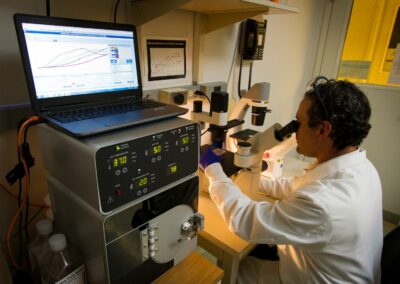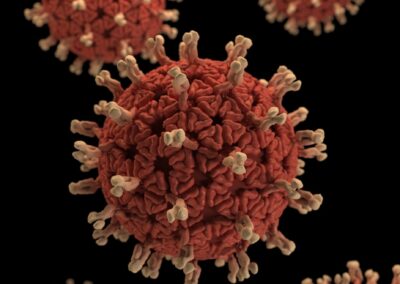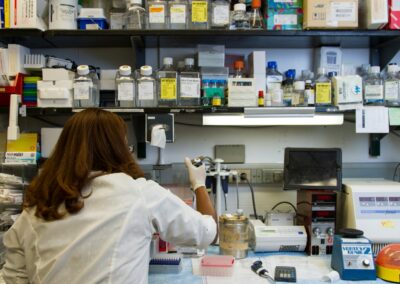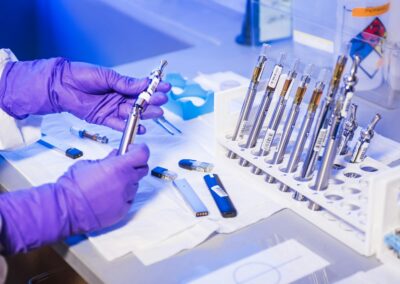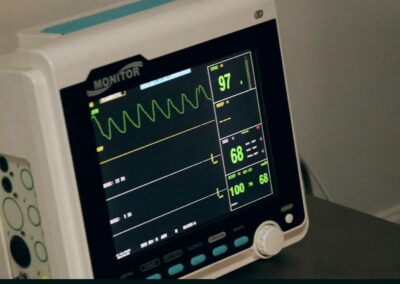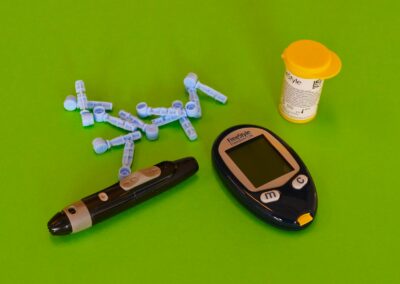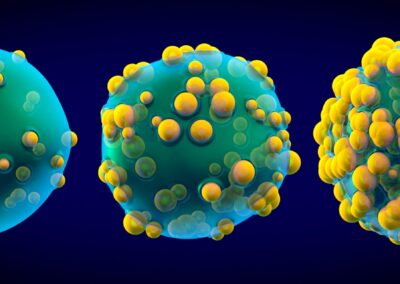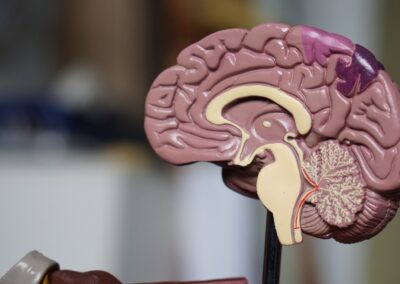Harnessing the Power of Digital Twins for Rare Diseases
Introduction to Digital Twins in Healthcare
Digital twins in rare disease management represent a transformative approach to personalized health monitoring and interventions. A digital twin is a dynamic virtual model that mirrors an individual’s physiological data in real-time. This technology enables healthcare professionals to simulate, predict, and optimize treatment plans tailored to the unique needs of patients with rare diseases. By continuously updating with real-time data, digital twins provide an unprecedented level of insight into patient health.
In regions like Saudi Arabia and the UAE, known for their commitment to advancing healthcare technology, the integration of digital twins is gaining traction. Cities such as Riyadh and Dubai are leading the way in implementing these innovative solutions to improve the management of rare diseases. Digital twins allow for a more comprehensive understanding of patient conditions, enabling proactive and precise medical interventions.
Leveraging cutting-edge technologies such as artificial intelligence (AI) and blockchain, digital twins ensure the integrity and security of patient data while facilitating seamless collaboration among healthcare providers. This holistic approach enhances the effectiveness of treatment plans, ultimately improving patient outcomes.
Real-Time Monitoring and Personalized Interventions
Digital twins in rare disease management offer significant advantages in real-time monitoring and personalized interventions. Traditional methods often rely on periodic check-ups and static data, which may not fully capture the complexities of rare diseases. Digital twins, however, provide a continuously updated model, integrating data from various sources such as wearable devices, genetic information, and medical imaging.
This real-time integration allows healthcare providers to monitor the patient’s condition closely and respond promptly to any changes. For instance, if a patient’s biomarkers indicate a potential health issue, the digital twin can analyze the data and suggest immediate interventions. This proactive approach helps prevent complications and ensures timely and effective treatment.
Moreover, digital twins enable healthcare professionals to simulate different treatment scenarios, predict outcomes, and choose the most effective strategies. This capability is particularly valuable in managing rare diseases, where treatment options may be limited and highly individualized care is essential.
Implementing Digital Twins in Rare Disease Management
The implementation of digital twins in rare disease management involves a multi-faceted approach, combining expertise from healthcare, technology, and regulatory sectors. The process begins with the creation of a detailed digital model of the patient, incorporating comprehensive data from genetic profiles, medical history, and continuous health monitoring devices.
Artificial intelligence plays a crucial role in maintaining and analyzing the digital twin. Machine learning algorithms process the vast amounts of data, identifying patterns and predicting potential health issues. Blockchain technology ensures the security and privacy of patient data, enabling safe and efficient sharing among healthcare providers.
Successful implementation requires collaboration and training across various stakeholders. Healthcare professionals must be equipped with the knowledge and tools to utilize digital twin technology effectively. Additionally, regulatory frameworks must be established to ensure ethical use and compliance with medical standards, protecting patient privacy and data integrity.
Strategic Benefits for Healthcare Systems and Patients
Enhancing Rare Disease Management Outcomes
The integration of digital twins in rare disease management significantly enhances patient outcomes by providing a detailed and dynamic view of the patient’s health. Real-time monitoring and personalized interventions help prevent complications and ensure that treatment plans are precise and effective. This technology is particularly beneficial for rare diseases, where continuous monitoring and individualized care are critical for successful management.
In Saudi Arabia and the UAE, where healthcare innovation is a priority, digital twins represent a major advancement in the management of rare diseases. By enabling more accurate and personalized treatment plans, digital twins improve patient outcomes and enhance the overall quality of care.
Additionally, digital twins can help reduce healthcare costs by minimizing hospital visits and preventing complications. By providing a comprehensive and real-time view of the patient’s condition, healthcare providers can deliver more efficient and effective care, ultimately improving the overall quality of the healthcare system.
Driving Innovation and Advancements
The adoption of digital twins in rare disease management is driving innovation and advancements in the healthcare sector. By leveraging AI and other advanced technologies, digital twins provide new opportunities for research and development. Healthcare providers and researchers can use digital twins to explore new treatment strategies, test their effectiveness, and identify potential risks before clinical implementation.
Moreover, digital twins contribute to the advancement of personalized medicine by providing insights into individual patient responses to various treatments. This knowledge supports the development of tailored treatment plans that are optimized for each patient’s unique physiology. As a result, healthcare systems can offer more precise and effective treatments, enhancing patient outcomes and advancing medical science.
In conclusion, the integration of digital twins into rare disease management represents a transformative shift in healthcare. By enabling real-time monitoring and personalized treatment plans, digital twins enhance the management of rare diseases, improve patient safety, and support the ongoing advancement of personalized medicine. As technology continues to evolve, digital twins will play an increasingly important role in shaping the future of healthcare, leading to better patient care and more effective treatment strategies.
—
#DigitalTwins #RareDiseases #PersonalizedHealthMonitoring #HealthcareInnovation #AIinMedicine #GenerativeAI #SaudiArabia #UAE #Riyadh #Dubai #Blockchain #ExecutiveCoaching #ProjectManagement


